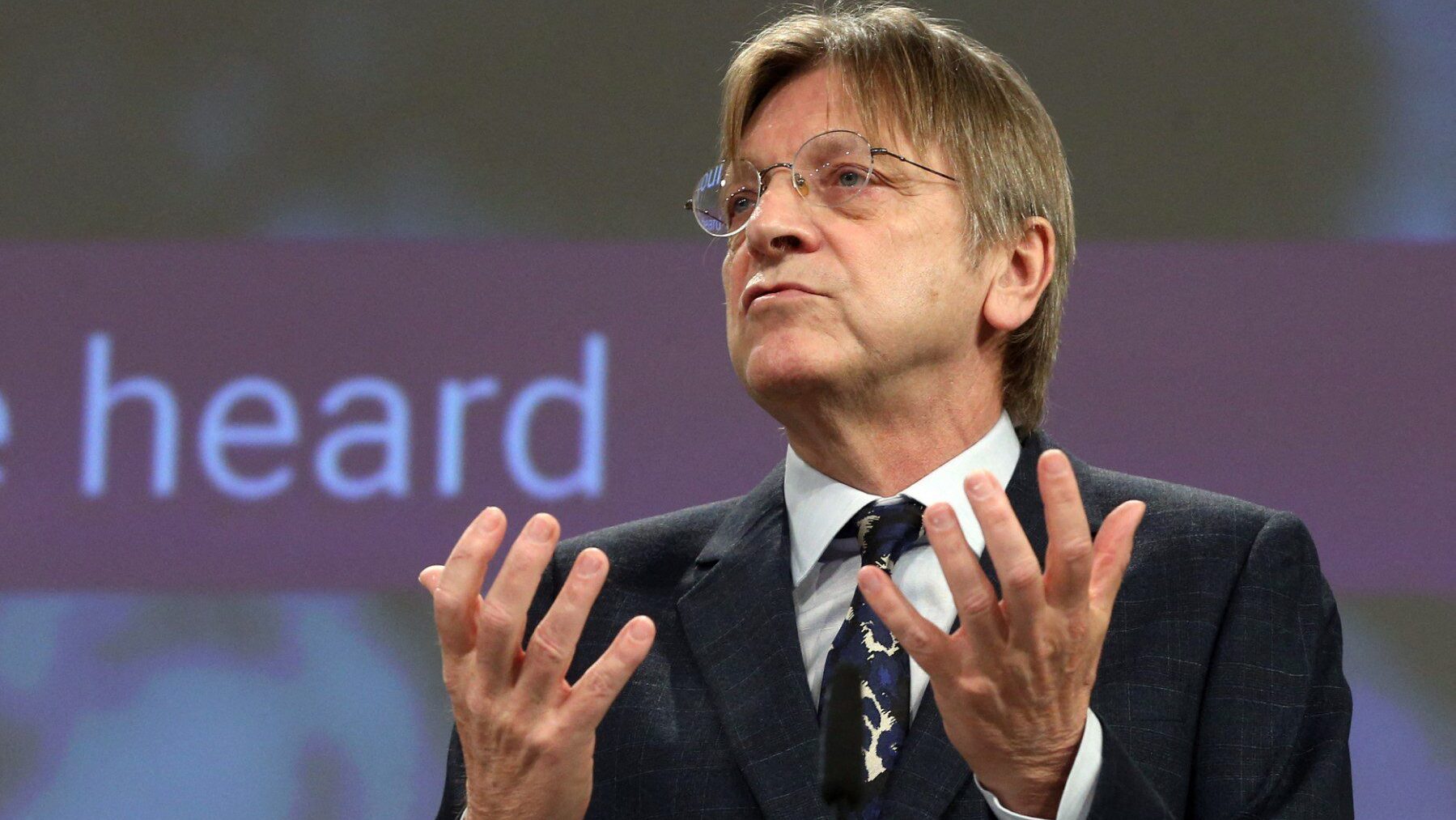The European Parliament will most likely approve a report on Wednesday, November 22nd, that seeks to amend the treaties of the European Union, liquidating member states’ veto rights, and giving more power to EU institutions in what conservative forces are describing as a dangerous power grab.
As we previously reported, the proposals were put forward by the so-called ‘Verhofstadt Group’, a circle of MEPs led by the Eurofederalist Guy Verhofstadt from the liberal Renew group. The plans would see a massive transfer of competences from a national to an EU level, and the unanimity voting system—veto rights of member states—would almost completely be abolished, to be replaced by majority or qualified majority voting.
The EU would be exclusively responsible for issues concerning the environment, public health, industry, and education. There would be shared competences with member states in the areas of energy, foreign affairs, external security and defence, and external border policy.
The European Parliament would have more powers, gaining a fully-fledged right of legislative initiative, and becoming a co-legislator for the EU’s long-term budget. The European Commission, the guarantor of the treaties, would become much more political: it would be renamed the European Executive, its president nominated by the Parliament, not the European Council (the member states), and the president would choose commission members (to be named Secretaries) based on political preferences.
The co-rapporteurs also proposed rewriting the fundamental values specified in the Treaty of the European Union, changing “equality between men and women” to “gender equality.”
The liberal, green and leftist groups of the European Parliament all support the proposals, as does the centre-right European People’s Party, making it very likely that the report will be approved.
Proponents of the report said in the European Parliament’s plenary debate on Tuesday that the reforms were necessary because of the crises the EU is facing, and that an enlarged EU of a potential 30-35 states cannot cope without change. Guy Verhofstadt said veto rights amount to “blackmail”, complaining that some member states—alluding to the conservative government of Hungary—had used their veto against issues such as migration quotas and financing Ukraine. Social Democrat Gabriele Bischoff also talked about the EU not being able to act decisively and quickly enough in a rapidly changing world, therefore vetoes and “dubious deals” have to be abolished.
Jacek Saryusz-Wolski, MEP of the Polish conservative PiS party, called the proposals an attempt “to hijack Europe,” and to create “a dystopian superstate that degrades member countries to the status of regions.” He warned that the reforms favour largely populated states, and are in contrast with the fundamental EU principle of equal representation. László Trócsányi of the Hungarian conservative Fidesz also alluded to the fact that four of the five co-rapporteurs of the report are German, and that the new proposals would increase the powers of institutions, but decrease the rights of small and medium sized countries.
Co-chairman of the European Conservatives and Reformists (ECR) Ryszard Legutko said “the report is living proof of how dangerous the EU has become.” He warned that if the proposals were to come into effect, the EU would have institutions that could impose moral and philosophical issues on its citizens, and will have instruments to punish those who have different views.
As Euractiv reports, there appears to be little appetite among national governments to re-open the treaties against the backdrop of the ongoing war in Ukraine and the cost of living crisis. A Parliament resolution last year calling for treaty change was ignored by member states.







